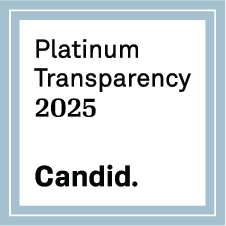Open Cities: Mexico
Mexico
Supporting local policies with open collective data.
Open Cities is a global initiative that seeks to catalyze the creation, management and use of open data to produce innovative solutions for urban planning and resilience. Co.Mapper Tulum is the version of this initiative that has been implemented for the city of Tulum, Mexico, in line with the GFDRR Resilient Cities Program.
GeoID acts as the implementing partner of Co.Mapper Tulum, within a partnership between GFDRR, HOT, the city government, and a diverse community of partners, made up of scientific and technological organizations from the region, development partners, and technology companies.

Objectives
The project, which began activities in November 2021, has the following objectives:
- Create and/or collate and publish high-quality, current open spatial data on the built environment, critical infrastructure, and natural hazard risks
- Enhance the local capacity and institutional development needed to support the design and implementation of urban resilience interventions
- Promote interaction and feedback mechanisms to improve participatory data
- Consolidate regional networks through OpenStreetMap and open source communities, in this case Mexican
These objectives seek to include and involve all interested people regardless of their level of theoretical or practical knowledge in collaborative and territorial projects, since developing and assimilating the skills to make the community grow is also one of the objectives of the project.

Training
The invitation to participate was initially opened to all the students and academic body of the Faculty of Geography of the Autonomous University of the State of Mexico, which is also an active node of the OpenStreetMap community of Mexico.
Undergraduate and Automated Cartography, Remote Sensing and GIS students showed particular interest in participating. They began remote mapping and learned about data quality and advanced validation, under the supervision of the implementing company: GeoID, born from the same community.
In a complementary way and for the future support that they will be able to give to their government, 2 campuses of the University of Quintana Roo (Cozumel and Chetumal) and different groups of geographers from national universities were trained during the National Meeting of Geography Students (ENEG).

The Tulum municipal team showed great openness in integrating a community vision into their local data system, in addition to expressing urgency in being able to develop their local plans, risk atlases, and Climate Action Plan, which must be based on fine local data that did not exist.
Tulum, like many municipalities in the region, has few resources and its technical team, from various departments, can learn a lot in terms of data management and cartography to enhance planning and apply these practices in their functions.
Methodology and implementation
Three major actions were carried out:
- qualitative community risk mapping
- accurate remote mapping of the territory
- continued training of municipal technical staff
For the social mapping, the 29 towns of the municipality of Tulum were grouped into 7 sectors, where the territorial liaisons (community representatives) were invited to bring together groups of inhabitants and local associations. People freely represented, on large printed maps, the expressions of climate change in the space they use and inhabit, as well as the multidimensional impacts they experience.
Social mapping is a participatory tool that allows reflection on the common territory. It does not pretend to be a faithful or exhaustive representation of reality, it is an exercise in which the participants identify the most impactful problems for them beyond what is visible, provides elements for the elaboration of a diagnosis of the territory, makes visible networks of collaboration, and it becomes a space to share experiences, socialize, debate, among others. This qualitative mapping of the entire territory was digitized to serve as input in the risk atlas.

The remote mapping lasted around 8 months, including several phases of training, validation and verification, complying with a highly detailed map of the area.
The technical managers in contact with data management, from all the addresses of the municipality, were trained in person and remotely on three occasions, refreshing and complementing the knowledge acquired in mapping in OpenStreetMap, its download and use, Open Data Kit and the most important of Qgis.
Finally, all the information is integrated into a free, lightweight, and low-maintenance geovisor, still in the process of being finalized, which will be made available to the municipality and possibly to the residents.
Outcomes
The experience made it possible to scale this initiative at the national level, integrating knowledge into the strategy for improving local territorial planning of the Ministry of Agrarian, Territorial and Urban Development (Sedatu).
Sedatu has launched a course with the objective of updating around 350 municipal urban development plans or programs at the end of its six-year term. This course wants to fight territorial inequalities in Mexico and take advantage of the investment in planning to obtain tangible results in the future, since this own Secretariat estimates that around two hundred thousand million Mexican pesos are lost annually due to lack of planning in the territories.
A MOOC was created aimed at training and accompanying the 2,471 municipalities in the country in carrying out or reviewing local plans, in which the Hub LAC participated. We have integrated detailed Openstreetmap, Open Data Kit and QGIS courses into the MOOC, and we are beginning to provide personalized support for some 30 municipalities until their plans are published.

Project Closure
During April 2023, various activities were carried out to close the project activities. Among them, the main one took place on Monday the 17th at an event in the municipal presidency.
Representatives of @CoMapper, @Geoid_mx and the Government team of Tulum, Quintana Roo @Ayto_Tulum. were present at this event. A year of work was summarized with the induction and training to the platform that crosses the local data generated and data from OpenStreetMap. This platform is called Gtool and was developed by@CoMapper, being the result of the Open Cities Mexico project.
The closure of the Open Cities Mexico project also included the participation of Fabrizio Scrollini, Director of the Open Mapping Hub of Latin America and the Caribbean, Peter Masters, Head of Communities of the Humanitarian OpenStreetMap Team, and Celine Jacquin, Project Manager of the Open Mapping Hub.
Now, a support contact will be maintained to find out about the applications and brakes that the city council may have in the use of the platform, and to ensure the integration of participatory data in government instruments such as the Local Risk Atlas.










